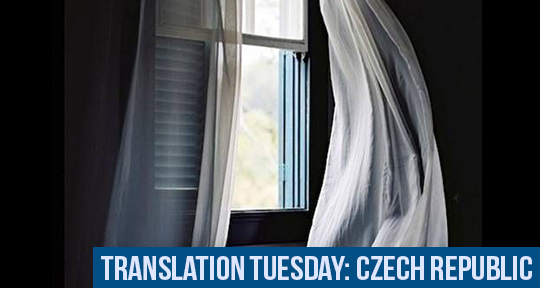This week’s Translation Tuesday brings you a modern moral fable from the nationalist Czech writer and politician Viktor Dyk. In “The Death of the Doll,” a child copes with loneliness and perpetual familial strife by finding kinship and love in a cherished doll; in the child’s imagination, the doll even becomes a voiced character. Dyk’s prose is deceptively sparse, mimicking the naïve and heartbreaking simplicity of the child’s worldview, which is brilliantly contrasted with the vitriolic dialogue of the parents. Translator Frances Jackson writes: “In another writer’s hands this could have all too easily descended into melodrama, but instead there is something satisfyingly understated about the text.”
The doll was very beautiful, all slender and white in a little pink dress. Her name was Edda and she could move both her head and her eyes. She could be seen in the window from the street and often made passing children envious because of her great size and beauty. Otilka sat with her by the window for that very reason; it pleased her to know that, in spite of everything, someone could be envious of something of that belonged to her.
If it were not for the doll, Otilka would have been sad most of the time. The room was dim and gloomy; she did not like to be in here. The sun did not shine this way: there was a tall building directly opposite. And the street outside was straight and inhospitable. Really, Edda was all that she had.
Twice a day, of course, she had to take the dismal stairs to get to school. And it was always torture to Otilka. People frightened her and so did school. There was nobody there to play with, nobody who might comfort her; the other children did play games, but she didn’t like it when they did. The games were unpleasant and rough, and the children unpleasant and spiteful. It gave them pleasure to hurt her; Otilka often found herself crying. It was probably all down to the malice of a bad wizard who had cast her among bad people.
And lately, in particular, it was no different with her mother. She used to play with her sometimes, tell her fairy tales and would even laugh every now and again, but now it was as if she did not have any time or just a smile for Otilka. And yet it was just the three of them there. READ MORE…

